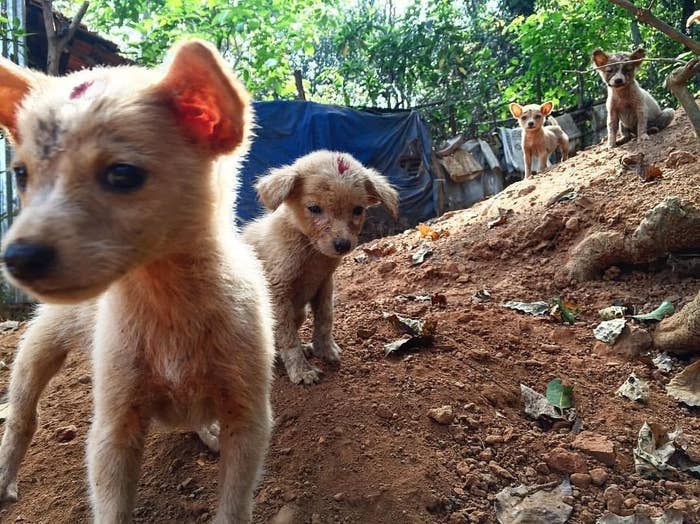
A 65-year-old woman died of rabies after being bitten by a puppy when she was on vacation in India.
The woman went on an organized yoga retreat from January to April 2017, according to the Centers for Disease Control and Prevention (CDC).
Outside of her hotel in Rishikesh, India, she and another person on the retreat were bitten by the same puppy. She washed the wound with water but didn’t seek any other treatment.
She returned home to Virginia, and about six weeks after the bite, started to have arm pain and numbness while gardening, according to a report in the CDC’s Morbidity and Mortality Weekly Report. Three days later she went to an urgent care facility and was diagnosed with carpal tunnel syndrome and treated with nonsteroidal anti-inflammatory drugs and a painkiller.
The next day, she went to the hospital with anxiety, insomnia, shortness of breath, and difficulty swallowing water. She was diagnosed with a panic attack and treated with an antianxiety drug. She continued to have feelings of claustrophobia, anxiety, and eventually chest pain, in addition to the numbness and pain in her right shoulder and arm.
After abnormal blood tests for cardiac enzymes and an electrocardiogram, she had an emergency cardiac catheterization, which is a procedure in which a catheter is threaded through blood vessels and into the heart’s arteries to look for a possible blockage. However, her arteries were clear. She became agitated, combative, and was gasping for air while drinking water. The hospital staff started to suspect it was rabies and asked her family about any animal bites.
After other treatment attempts were unsuccessful, the family withdrew life support, and she died about 18 days after her symptoms first began, according to the CDC report.
Health experts tracked down 250 people who came into contact with the woman before and after she died, including other people in the yoga retreat, emergency services personnel, hospital workers, and people at a funeral home.
In all, 72 people were offered treatment for possible rabies exposure with post-exposure prophylaxis at a cost of $235,000.
Post-exposure prophylaxis can prevent rabies if given before the start of symptoms, which generally begin about three weeks to three months after exposure to the virus.

This has been the ninth rabies death in the US since 2008 in someone who was traveling or working abroad.
Vaccination has helped to eliminate rabies from dogs in the US, but that's not the case in at least 122 other countries around the world. Dogs and cats in the US are still routinely vaccinated against rabies because the virus circulates in wild animals, such as bats, raccoons, and skunks. Every year, about 60 to 70 dogs and more than 250 cats in the US develop rabies because they have not been vaccinated.
This is the 24th rabies death in the US since 2008. However, about 59,000 people around the world die every year of rabies. Many of those deaths are in Africa and Asia and often are in children.
People who are traveling from the US to countries where rabies is more common should consider getting vaccinated before their trip, according to the CDC.
“Travelers to India, which has the world’s largest incidence of dog-mediated human rabies deaths, are recommended to receive pretravel rabies vaccination if they will be involved in outdoor activities (such as camping, hiking, biking, adventure travel, and caving) that put them at risk for animal bites,” writes Julia Murphy of the Virginia Department of Health, and coauthors, in the report.
For more specific information, check out the CDC’s recommendations for vaccinations you should get before traveling.
